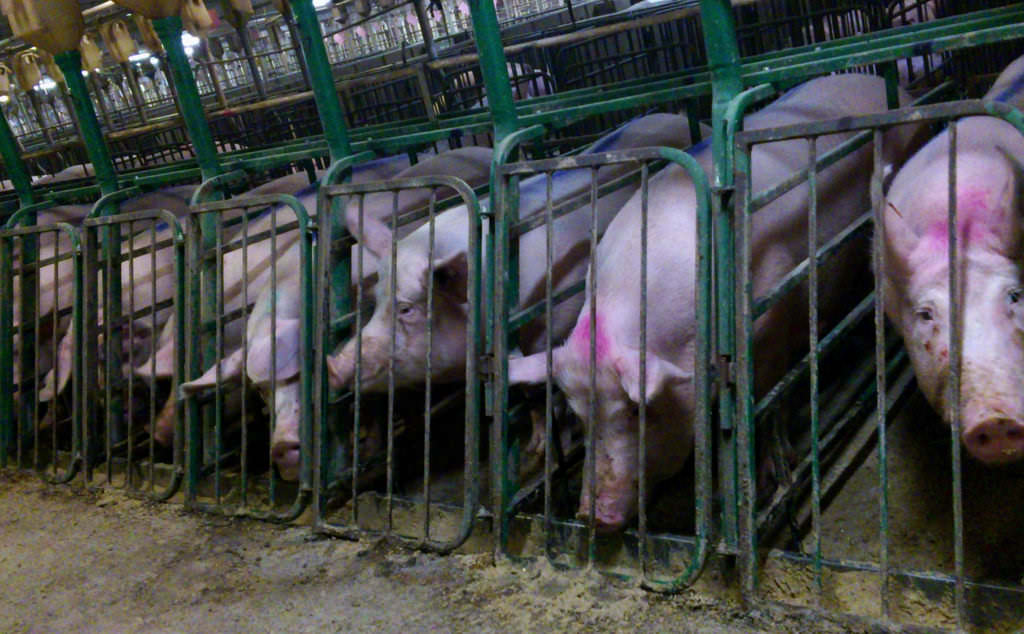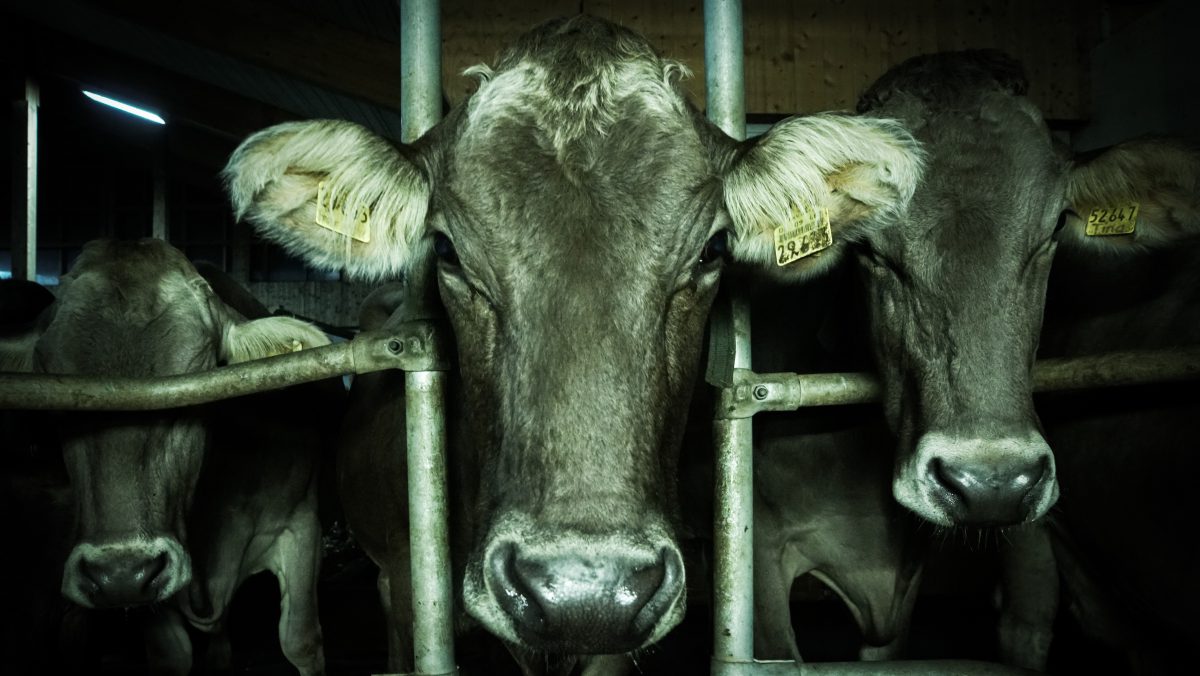Activism
An Open Letter to the WHO—Industrial Animal Farming Must End
Infection is constant problem and most farms use large quantities of antibiotics to control it.

“Unprecedented and rising levels of industrial animal farming are undermining the highest attainable standard of health that is WHO’s mandate”
Every year more than 55 billion land animals are raised and killed for food around the world. Most are reared in industrial factory farms in circumstances that harm human health and the environment in significant ways.
Worldwide livestock production is expected to more than double between 2001 and 2050, an increase that will undermine the World Health Organisation’s (WHO) aim of achieving the highest standards of global health.
Next month, as a new Director General takes over the WHO leadership, an open letter will be released calling for a reduction in factory farming and a shift towards more sustainable agricultural practices.
The letter focuses on factory farming’s contribution to three pressing global health challenges: antibiotic resistance, climate change, and chronic non-communicable diseases. Here are the letter’s key points.
Antibiotic resistance
Factory farming is highly intensive with large farms hosting tens of thousands of animals. Infection is constant problem and most farms use large quantities of antibiotics to control it. In the United States 80% of all antibiotics used are given to livestock.
The WHO estimates that between 2010 and 2030, antibiotic use in the livestock industry will increase by 70% worldwide, driven primarily by growth in industrial farming practices in low- and middle-income countries.
The use of antibiotics in livestock farming has been identified as an important contributor to antibiotics resistance. If antibiotics lose their effectiveness we will no longer be able to treat infections. This could lead to millions of unnecessary lives lost.
Already 700,000 people die from antimicrobial-resistant diseases each year around the word—23,000 of them in the United States—a figure that will continue to rise in the coming years unless we take urgent action.
Climate change and the environment
Livestock farming, particularly industrial factory farming, has a huge environmental footprint. It contributes to land and water degeneration, biodiversity loss, acid rain, coral reef degeneration and extensive deforestation, but also has a potent effect on climate change: nearly one fifth of all human produced greenhouse gas emissions emanate from the livestock sector. This is more than the emissions from cars, planes, ships, trains and all other forms of transport combined.
Climate change has been described as the greatest threat to human health and wellbeing of the 21st Century. Its impact will be felt through the increased incidence of severe weather events – tropical storms, floods, droughts and heatwaves—as well as the extended reach of infectious diseases such as malaria and Zika virus. Studies show that climate change is already harming us right now. By 2030 it is expected to cause upwards from 250,000 deaths each year.
Reducing livestock consumption is essential if we are to stay within 2C of warming, the agreed threshold for dangerous climate change. Without drastic reforms agriculture will account for half the world’s carbon budget necessary to remain under 2C by 2050.

Obesity and non-communicable diseases
Obesity and other non-communicable diseases are now the major cause of premature morbidity and mortality worldwide. Meat consumption, particularly of red and processed meat, is a significant contributor to this disease burden, increasing the risk for heart disease, obesity, diabetes, and various cancers—the WHO has classified processed meat as carcinogenic and red meat as probably carcinogenic.
Most people living in high income countries eat too much meat—on average 200-250g per person per day—much more than the 80-90g recommended by the United Nations. Reducing meat consumption in line with UN recommendations could offer substantial health benefits worldwide. By one estimate, we could save up to eight million lives every year by 2050 if we switch to a predominantly plant-based diet.
Open letter on factory farming
“The harms caused by large-scale, industrial animal farming are global in nature and felt beyond those who consume meat and dairy. Climate change does not recognize borders and neither do drug-resistant infectious diseases.”
The effects of factory farming represent a large and growing contribution to the global disease burden. In the face of these health challenges, reducing production and minimising its harm will be essential to securing the future of global health.
The open letter, initiated by Scott Weathers and Sophie Hermanns, will be delivered to the newly nominated WHO Director General next month. It has garnered signatures from Bill McKibben, Mark Bittman, Marion Nestle, Peter Singer, Noam Chomsky, and others, and is a call for action on factory farming:
- We call on academics and researchers to apply their energy to document and publicize the harms of industrial animal farming to human, animal, and planetary health.
- We call on all candidates for the WHO-Director General position to publicly acknowledge the harm that industrial animal farming inflicts on global health. The next Director General should take necessary steps to limit the expansion of industrial animal farming and encourage dietary recommendations that reduce meat consumption.
- Finally, we call on the next WHO-Director General to provide global leadership to support the developing world in finding sustainable alternatives to the rapid growth of industrial animal farming and help shift us toward farming methods that protect public health and the environment.
The WHO has already made significant progress in tackling global public health challenges such as infectious disease, motor vehicle safety, and tobacco and sugar consumption. It is time for it to step up action on factory farming—the threats are too great to ignore.
Read the Open Letter here.






